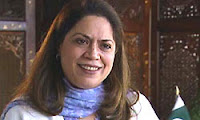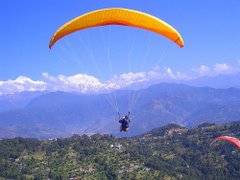King Gyanendra, Armourless
- He is no longer the head of the state—laws do not require his assent before they are promulgated; can’t receive credentials of diplomats
- Nepal’s currency will no longer carry the king’s visage
- Can’t travel outside Kathmandu without the PM’s permission
- Royal property to be nationalised; personal income to be taxed
- A stone-pelting crowd greeted his entourage on Mahashivratri day
- Moves afoot to slash the royal security personnel from 3,000 to 400
- Muncipality to demolish the boundary wall of his palace in Hetauda, 150 km south of Kathmandu; unthinkable earlier.
His Income
- Rs 80 million worth of shares in Soaltee Hotel; Rs 6.5 million in Himal Goodrick; Rs 33.6 million in Surya Nepal and Rs 2,50,000 in Himal International Power Corporation
What He Owes The Government
- For July 2005-June 2006, he owed Rs 5.6 million for water, Rs 8.3 million for electricity, and Rs 2.6 million for telephone.
How Has He Taken The Change ?
- Initially became a recluse, retreated to Nagarjun hills outside Kathmandu.
- Grew beard and moustache. And though he has shaved off his beard, he still has the moustache. Perhaps to remind people of his slain brother King Birendra whom people loved and respected.
- Smokes heavily, over 20 cigarettes a day—and in public. Earlier, never smoked during cabinet meetings.
- Often drives his own car like any ordinary citizen; no siren or getting police to clear roads for his cavalcade.
- Has appeared in public thrice, apart from attending marriages in the family of his erstwhile ministers.
- New habit: diligently reads all articles about him and politics daily.
Can He Save Himself ?
- Perhaps, only by abdicating in favour of his grandchildren.
On the balmy evening of April 14, 2005, King Gyanendra was celebrating the Nepali new year at the army headquarters in Kathmandu, holding a glass of whisky and talking to officers fawning over him. His mood was upbeat: only two months ago he had usurped power to rule directly over Nepal. Suddenly, the glass of whisky slipped out of Gyanendra's hand and shattered. "I might break but not bend," he declared imperiously.Now, a year after the popular upsurge restored democracy to Nepal, the king is palpably bending every passing day to the insuperable will of his people. And now the once-hallowed institution of kingship could shatter for good. Not only are the Maoists baying for the abolition of kingship, even PM G.P. Koirala, earlier considered a votary of constitutional monarchy, said recently, "King Gyanendra through his actions has paved the way for the republic, the constituent assembly will declare Nepal a republic."
Even before Koirala's dire comment, the past few months have been traumatic for Gyanendra, who has watched silently the stripping of his powers. He's no longer the head of the state—bills of parliament no longer require his assent; he can't receive diplomatic credentials; he can't administer the oath of office to heads of constitutional bodies; no longer will the currency of Nepal carry the king's visage. The ambiguity of his status is such that he has to even seek the PM's permission to journey outside Kathmandu.
For instance, Koirala 'advised' the king to not visit Hetauda, 150 km south of Kathmandu, where he had wanted to spend a fortnight in December.
His ambiguous status was perhaps the reason why Gyanendra didn't attend the wedding of Devyani Rana, daughter of Pashupati Shumsher Rana, to Aishwarya Singh, grandson of Union HRD minister Arjun Singh, in Delhi last month. Palace sources say the king sent a pair of gold bracelets as a wedding gift for Devyani, whose alleged affair with crown prince Dipendra—and his family's opposition to it—was the cause of the royal massacre of June 2001.
Symbolically, the cruellest blow came when the government discontinued the tradition of observing Prithvinarayan Shah's birth anniversary on Jan 11 as the national integration day. Prithvinarayan wasn't just the founder of the ruling Shah dynasty; he also welded the country, in 1768, into Nepal as it exists today. The hatred against Gyanendra provoked agitators during last year's pro-democracy protests to deface the statue of Prithvinarayan in Kathmandu. A year later it hasn't been repaired; the statue is shrouded in cloth to save the dynasty from the revolting sight of its shaming.
This telling political symbolism became nastily real on Feb 17, when the king visited the Pashupatinath temple to offer puja on the occasion of Mahashivratri. Impatient to enter the temple, the assembled pilgrims began to pelt stones at the royal entourage, angry at having to wait for the king to perform puja.
Security officials managed to whisk Gyanendra to safety. Two years ago these pilgrims would have eagerly waited to catch a glimpse of the king who's revered here as an incarnate of Lord Vishnu.Worryingly for Gyanendra, a cabinet committee has been tasked to initiate the process of nationalising the royal property he inherited. A law has been also enacted to bring his personal assets and income under the tax net. The imminent nationalisation of royal property could financially sap him. He and his family together have Rs 80 million worth of shares in Soaltee Hotel; Rs 6.5 million in Himal Goodrick; Rs 33.6 million in Surya Nepal and Rs 2,50,000 in Himal International Power Corporation—no doubt an eye-popping amount for ordinary mortals, but a mere lavish icing for the royal family which has ruled the country for ten generations. (Nepali Re 1 equals Indian Rs 1.60.)
The existing royal paraphernalia is due for trimming: the king's security personnel is to be slashed from 3,000 to 400, and the exclusive palace cadre merged with the civil administration, says a cabinet committee member. The irreversible logic of a future republic has emboldened the municipality of Hetauda to earmark the boundary wall of the king's palace there for demolition and widen the adjoining pavement for pedestrians. Unthinkable till last year, officials delight in leaking to the press the king's dues to public utilities. Computed for all his palaces and houses, the amount is embarrassingly high—for July 2005-June 2006, it was Rs 5.6 million for water, Rs 8.3 million for electricity, and Rs 2.6 million for telephone.The king is on his knees. Before his people, in changing times. For Gyanendra, the whittling down of his privileges must be depressing. His response was to retreat to the royal forest lodge located in the dense woods of Nagarjun hills on the outskirts of Kathmandu. Built by his brother Birendra, Gyanendra has added a gym and sauna to the lodge. The lodge remains his home from where he drives to his office at Narayanhiti palace. Humility has replaced the arrogance of the past.
At traffic intersections, motorists have been surprised to see in their rearview mirror Gyanendra at the wheel of his car. No wailing siren, no stopping of traffic to provide the monarch a free passage.
In office he keeps busy poring through piles of newspapers, particularly those articles critical of him—and sharing his opinion about these with his secretaries, sometimes even asking them for their opinions. The day's work over, he returns to the solitude and greenery of the Nagarjun hills, rarely ever visiting, sources say, Nirmal Niwas, where resides the notorious crown prince Paras.
In the initial months, Gyanendra kept away from public ceremonies. His first public appearance was during the Dashain festival in October-end. Thereafter, he again took to a cloistered existence, growing a moustache and a beard, perhaps a reflection of his state of mind. Though he appeared clean-shaven on the Vasant Panchami day, Jan 23, he retained the moustache, styled like his deceased brother's, in the hope of reminding people about his association with a man still immensely popular.
In the last two months Gyanendra has been meeting a select group of people. Some of them told Outlook that he not only smokes heavily now (more than 20 cigarettes a day), but doesn't refrain from lighting up before them either. (Earlier, he'd sit through lengthy cabinet meetings without smoking.) These audiences are aimed at eliciting the opinion of 'experts' to save the monarchy. A politician who met the king recently told Outlook, "Some advise him to abdicate in favour of his six-year-old grandson Hridayendra, given the implausibility of securing popular support for him and his son, Paras. The king listens to them patiently, silently nodding his head."
It seems the changing times have chastened him. Another politician told Outlook, "The king candidly admits that though his takeover was in the best interest of the people and caused by the failure of political parties, the palace machinery simply failed to feel the pulse of the people." No doubt he's weary and worried, but philosophical to the loss of his powers. To barbs routinely thrown by politicians, he shrugs his shoulders and reportedly says, "This is part of politics, I understand that." He has chosen not to counter accusations of fanning the unrest in the Terai and conspiring to kill American officials to discredit the Maoists. The only time he broke his silence was when he had his office issue a press release expressing deep hurt over a book, Raktakunda (A pool of blood), written by a journalist who claimed to have been told by a maid in the palace about the conspiracy underlying the royal massacre of 2001.
The pathos of the king in the times of an emerging republic, unfortunately for Gyanendra, evokes little sympathy among the masses who know the end of the dynasty is inevitable. They narrate the popular folklore of how Guru Gorakhnath, Nepal's most venerated saint, blessed Prithvinarayan Shah at the time he founded his dynasty and said, "Ten generations of your family will rule this kingdom." King Gyanendra belongs to the tenth generation of the Shah dynasty. In a country deeply religious, as also superstitious, the folklore has persuaded people that the abolition of the monarchy has been guaranteed by the gods.
Source: Outlook








